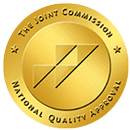Nutritional Counseling, or Nutrition Therapy, has been demonstrated to drastically improve addiction recovery rates in three-month substance abuse treatment programs. Individuals with substance abuse addiction have dietary issues because they are either not eating enough or they are consuming foods that have low nutritional value. According to research, the most effective substance abuse program would lose its efficacy without the integration of proper nutritional counseling for those recovering from addiction. Working with a licensed nutritional counselor, an individual has a better chance at maintaining long-term recovery and improve behavioral health conditions.
Drugs, Alcohol and Nutrition
“Empty calories” are the root cause of malnutrition in people suffering from alcohol and drug addiction. When someone is using a substance, his body receives a false sense of “fullness” and sends signals to the brain that it is not hungry. As a result, the individual consumes little to no food that has actual nutritional value. Not only do drugs and alcohol fill the stomach with empty calories, these substances also destroy the body’s ability to absorb nutrients and expel toxins, resulting in gastrointestinal, nervous and mood disorders.
Impact of Nutrition on Recovery
Lack of nutritional knowledge and food preparation skills are primary factors contributing to poor dietary habits among those recovering from opiate and alcohol addiction. Research has shown that exercise and good nutrition education are effective, especially during detoxification. The individual may experience substantial weight gain or weight loss due to changes in dietary habits. Nutritional deficiencies have resulted in:
- Weakened immune system
- Poor brain function
- Pain and muscular/nervous disorders
- Obesity
- Diabetes
- Cardiovascular disease
- Carbohydrate-metabolism health problems
The Role of Nutritional Counseling in Recovery
Nutritional counseling addresses the negative attitudes that may impede an individual’s progress toward recovery, such as his reluctance to adhere to the program’s treatment plan or his view of health care providers. During detoxification, nutritional intervention has been demonstrated to improve treatment outcomes; to compensate for the depletion of nutrients in the client’s body, a high dosage of key proteins, vitamins and minerals is prescribed according to each person’s specific needs. The Registered Dietitian will also examine other factors contributing to the individual’s nutritional deficiencies such as food choices, physical and biochemical changes.



